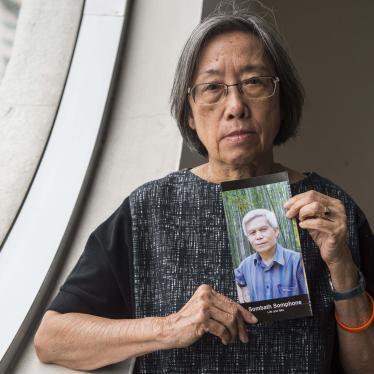When Australian Prime Minister Malcolm Turnbull visits Malaysia on November 21, 2015, he should consider the words of the persecuted Malaysian political cartoonist Zunar.
Speaking to a crowd gathered at New South Wales Parliament House last week, Zunar said, “People ask me why I don’t seek asylum in another country. But someone has to stand up to the government. Everyone has fear, I have fear, but responsibility is greater than fear.”
Zunar has used political cartoons to highlight the responsibility of Malaysian government officials for human rights abuses, corruption, racism, and other problems facing his country. As a result, Malaysian authorities have banned Zunar’s books of cartoons, threatened his publishers, and even banned all political cartoons outright in the two-week lead-up to the 2013 election.
Even worse, Zunar is currently facing nine counts of sedition in Malaysia, not only for his cartoons, but also for simply tweeting about the persecution of opposition leader Anwar Ibrahim.
Zunar could go to prison for many years. And sadly, he is just one of dozens of opposition politicians, activists, bloggers, journalists, and rally organizers who have been swept up in Malaysia’s intensifying crackdown on free speech in the lead-up to the top-level East Asia Summit in Kuala Lumpur, on November 21.
Since mid-October, Malaysian authorities have charged two opposition members of parliament, an opposition activist, and two rally organizers with criminal offenses for exercising their free speech rights. They have also threatened criminal charges against other critics and raided the offices of two online news portals reporting on corruption investigations.
Attending the summit, Turnbull and other world leaders should press Malaysia’s government to stop this repression. He should call on Prime Minister Najib Razak to end the use of criminal defamation, sedition, and other laws that criminalize dissent. And he should ask to visit Anwar Ibrahim, who is in ill-health and imprisoned on a politically-motivated charge.
Australian Foreign Minister Julie Bishop and Attorney General George Brandis have recently announced Australia’s candidacy for a seat at the United Nations Human Rights Council for a term spanning from 2018 to 2020. They said that Australia’s council term would focus on freedom of expression, among other issues, and on advancing human rights in “our Indo-Pacific region.”
It’s not too early to start that approach.
|
Dispatches
Dispatches: Free Speech in Malaysia is an Australian Concern Too
Your tax deductible gift can help stop human rights violations and save lives around the world.
Topic
Most Viewed
-
December 11, 2025
Russia’s Systematic Torture of Ukrainian POWs

-
March 31, 2022
Iran: Women Blocked From Entering Stadium

-
December 15, 2025
DR Congo: Fall of Eastern City Puts Civilians at Risk

-
December 15, 2025
Another Blow to Media Freedom in Ethiopia

-
November 12, 2018
“Shall I Feed My Daughter, or Educate Her?”




